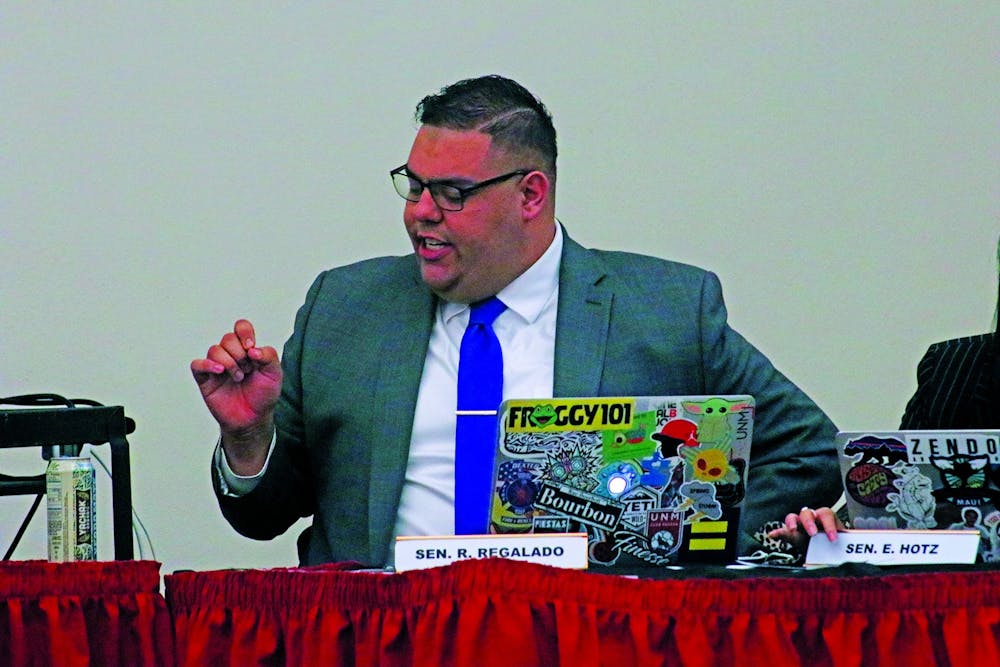Student government senators and officials alike can now personally endorse candidates running for any Associated Students of the University of New Mexico position after the passage of Bill 3S on Feb. 12.
Whether it be through social media posts or on-campus canvassing, student government officials can publicly support candidates as long as they keep in accordance with the University’s policy on political activity.
Policy 2060 dictates that University employees cannot use UNM resources — such as logos or office supplies — to engage in any political activity without University approval.
Steering and Rules chair Ryan Regalado co-authored Bill 3S. Regalado said the bill was necessary because ASUNM's policy on endorsements was ambiguous prior to the legislation.
"It just needed to be specifically defined," Regalado said. "First Amendment-wise, it needs to be defined if we can't or can (endorse candidates)."
Regalado said the bill doesn't allow ASUNM officials to discuss who they endorse during work hours — as it would violate University policy — but said that was already an unwritten policy within ASUNM at the behest of several previous undergraduate student government presidents.
Although the written policy cleared up the confusion surrounding the admissibility of endorsements, Regalado said enforcement of the bill is not as spelled out.
"(Consequences) would really be up to the Elections Commission or Student Court for them to determine how severe the penalty is," Regalado said. "It's kind of up to their discretion and could go up to campaign finance to disqualification. It just depends on how severe it is."
Despite Bill 3S's passage with a senatorial majority, Elections Commission Executive Director Todd Moe aired criticisms of the legislation during public comment at Wednesday's Full Senate meeting.
Moe contended it could cause a divide within ASUNM and lead to a disproportionate ASUNM impact in elections. Moe did not respond to the Daily Lobo's requests for further comment on his stance.
Senator Timothy Mondloch, who voted in favor of Bill 3S, asserted the possibility of having ASUNM influence in elections was not borne from this bill.
"Influencing individuals to run is not something new (for ASUNM)," Mondloch said.
Get content from The Daily Lobo delivered to your inbox
He went on to describe the unwritten influence of current and past ASUNM people that is entangled in the system. Mondloch said this influence can lead to similar people running for ASUNM positions due to disproportionate access.
"The criticism was moot in the face of the fact that there are many voiceless populations on campus who don't have as many connections to be able to run, and our voices as senators can help give them that connection," Mondloch said.
Mondloch said he drew this conclusion based on his experience running for ASUNM Senate and the experiences of other members of his slate, IncludeUNM.
Mondloch said the slate IncludeUNM ran, which ran in fall 2019, as a diverse coalition of students who reflect the student body and often belong to "voiceless communities" on campus.
In Mondloch’s view, Bill 3S can encourage more students from those marginalized communities to run for ASUNM and make needed changes from within the system.
"What I thought was important for this bill was giving the opportunity for those populations who aren't connected to the major contributors of ASUNM, Greek Life, past ASUNM people who are just friends and tell their friends to run," Mondloch said.
Alyssa Martinez is the news editor at the Daily Lobo. She can be contacted at news@dailylobo.com or on Twitter @amart4447






